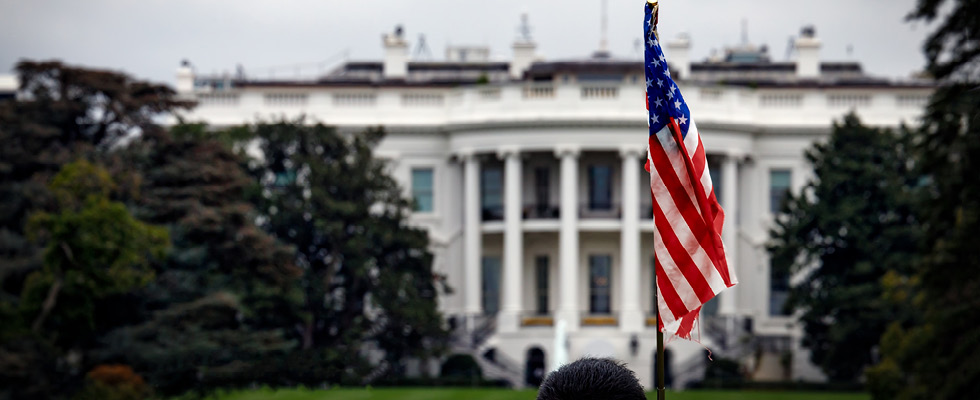
In this Q&A with National Propane Gas Association (NPGA) President and CEO Steve Kaminski, we discuss the executive branch’s role in shaping energy policy, how presidential elections impact the propane industry and key advocacy efforts. We also explore state-level regulations, challenges and opportunities for the sector, showing how the industry can adapt to these evolving dynamics.
To what degree does the executive branch control how energy is incentivized and regulated? How does this relate to Congress and individual state policies?
The executive branch — comprising the president and the federal regulatory agencies — plays a crucial role in shaping the energy landscape through policy directives, regulatory authority, financial incentives and administration of key energy agencies. While the executive branch’s power is substantial, it is not without limits. Congress holds the authority to create and pass laws, conduct oversight and control federal funding. Additionally, powers not expressly granted to the federal government are reserved for the states, allowing them significant discretion in crafting and implementing their own local energy policies. NPGA supports state and regional associations for advocacy at the state and local levels.
Can you give a brief overview of how energy policy is impacted by who holds the presidential office?
Presidents set the tone for energy policy across the executive branch. If a president chooses to promote a particular energy policy, the president will select appointees who align with that interest. Appointees oversee federal agencies that enact federal regulations that could impact NPGA member companies. Between 2020 and 2024, NPGA was able to ensure that certain proposed regulations — e.g., negatively impacting residential gas water heaters, Energy Star furnace labeling and consumer cooktops — did not reach the stage of final, binding federal policy. In 2025, NPGA has strong ties with a number of President Donald Trump’s appointees across key agencies — the Environmental Protection Agency, the Department of Energy, the Department of Transportation, the Consumer Product Safety Commission and the Department of Labor. NPGA will work diligently to ensure that agency leadership is educated on propane’s crucial features, such as reliability, affordability, resiliency, energy density and relative environmental impact.
Given the shape of the new presidential cabinet and Congress, what are a few policies that NPGA will focus on in the coming years?
Regardless of which political party is in power, NPGA will strongly advocate for propane interests. The incoming Trump administration marks a shift from President Joe Biden’s policies, with a much stronger emphasis on all-of-the-above energy solutions. NPGA will collaborate with the Environmental Protection Agency to seek true parity within the Clean School Bus Program and will also work with the Department of Transportation to ensure realistic and appropriate interpretations of hazardous materials regulations. Additionally, NPGA will partner with the Republican majorities in the House and Senate to advance energy choice legislation, achieve positive new provisions in the Farm Bill and secure extensions of the Sec. 199A qualified business income deduction. These are just a few of the many priorities that NPGA will actively champion in the coming years.
With it being generally accepted that the election result is a favorable outcome for those in the gas industry, what indicates that the new administration will benefit the propane industry?
The new administration includes appointees familiar with and supportive of the propane industry. NPGA looks forward to working with the administration at the federal level, for example, on the matters referred to in the prior paragraph. In addition, NPGA believes the Trump administration will roll back several Biden administration energy policies, potentially including the natural gas export permit pause and certain electric vehicle tax credits. However, NPGA anticipates that certain state governments will double down on anti-gas policymaking efforts, knowing that they aren’t as likely to have federal backing. In addition to Republicans, NPGA works closely with a number of pro-propane Democrats. It is important to remember that the Republican majorities in both the House and Senate are razor thin, and the Senate filibuster rule de facto requires 60 votes for most actions NPGA would seek rather than 51, and Republican control of Congress is only guaranteed for two years, not four.
Are there any ways the incoming administration could negatively impact the propane industry that those in the industry should be aware of?
NPGA expects the Trump administration will be generally supportive of an all-of-the-above energy policy, which includes the use of propane and all its applications, fewer regulations and business-friendly tax policy. That said, NPGA is closely watching the Trump administration’s tariff policy, as many NPGA members (such as manufacturers) depend on overseas parts and products, and 7% of propane sold in the U.S. is imported from Canada. NPGA is poised to work with President Trump and the relevant agencies to continue to promote propane’s essential role in the low-carbon energy transformation.
What are the biggest legal challenges facing the propane industry right now?
The propane industry’s most significant legal challenges are state, county and municipal efforts to limit consumer energy choice by enacting gas bans, which impact propane-fueled appliances. These efforts have been overturned in several instances, including the 9th Circuit Court ruling that struck down the gas ban ordinance in Berkeley, California, and by the voting public through a ballot initiative in Washington state that blocks the state and local governments from restricting natural gas and propane services in homes and buildings. The propane industry will continue to fight for consumer energy choice nationwide. Currently, by working with state and regional propane associations and coalition partners, 27 states — accounting for approximately 50% of all gallons sold in the U.S. — prohibit gas bans at the municipal level.
There are also numerous non-legal challenges facing the industry. For example, there are multiple codes-and-standards-setting bodies that continue to attempt to enact new provisions that are not favorable to an all-of-the-above energy solution for the U.S. NPGA has worked tirelessly to stave off initiatives that could severely impact the propane market and has achieved numerous significant wins before multiple codes-and-standards-setting bodies.
Other challenges principally focus on administrative overreach by the federal government and delegated enforcement by state administrative agencies. NPGA will continue to challenge administrative overreach and seek cooperative solutions with federal and state administrative agencies to address these issues.
What lessons can the industry learn from previous post-election shifts in energy policy to prepare for potential changes?
The greatest lesson NPGA has learned from previous congressional majority changes is never to let our guard down. While the Republican majorities in Congress may be less burdensome to the propane industry, the balance of power will constantly shift. Over the next couple of years, NPGA will focus on educating congressional Republicans and Democrats on the benefits of propane as a clean alternative fuel. Similar past efforts have helped foster bipartisan relationships with members of Congress who have shown support for propane initiatives. In fact, NPGA currently counts 41 members of the Congressional Propane Caucus, and we will seek to grow that number among new representatives.
In terms of the direct impact the change in administration could have on day-to-day propane business operations, what should the industry keep an eye on? Are there any proposed policy changes and/or dates to be aware of?
NPGA anticipates building strong working relationships with the incoming administration. Those relationships will allow NPGA to identify, well in advance, any potential impacts of regulatory or policy actions the administration may pursue that may impact propane. As always, NPGA will continue to monitor policy directives and agency actions that could affect the industry.
How might the election outcome shape the broader energy market, and what implications could this have for propane as a fuel source?
In the broader context, we expect the Trump administration to take action that will facilitate strong U.S. energy security, which we expect will translate to increased production of conventional liquid fuels and fewer giveaways to non-conventional energy sources. NPGA will continue to educate all elected and appointed officials on propane’s reliability, affordability, resiliency, energy density and relative environmental impact. NPGA expects to work well with the incoming administration. NPGA will continue to advocate for the propane industry with the new leadership and look for opportunities to strengthen propane’s role in energy transformation.
In light of the upcoming presidential term, what advice would you give a propane business owner operating in a state that pushes for stricter regulations on energy choice?
NPGA encourages business owners to connect with their state or regional association lead or NPGA staff, who focus on state affairs. These staff are ready, willing and able to support propane business owners with advocacy tools and outreach. There are numerous new tools NPGA has made available to help drive advocacy, education and safety successes, and we are always just a phone call or email away.


